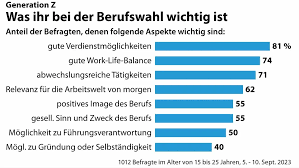The Rise of Gen Z: Characteristics and Impact

Introduction
Generation Z (Gen Z), commonly defined as those born from the mid-1990s to the early 2010s, is becoming a major force in shaping modern society. As the first generation to grow up with the internet and smartphones, they have unique traits and perspectives that significantly influence cultural, economic, and social trends. Understanding Gen Z is crucial for businesses, educators, and policymakers as they navigate a rapidly changing world.
Defining Characteristics of Gen Z
Gen Z individuals are notable for their digital fluency; they are adept at using technology and social media as communication tools. Research indicates that over 90% of Gen Z own smartphones, making them the most connected generation. This constant connectivity has fostered a strong sense of community and awareness regarding social issues, including climate change, equality, and mental health.
Consumer Behaviour and Economic Influence
Economic analysts have found that Gen Z has distinct consumer behaviours. They are cautious with finances and prioritise value and sustainability over brand loyalty. A report by McKinsey highlights that 73% of Gen Z consumers are willing to pay more for sustainable products. This shift is forcing retailers to revise their strategies to meet the expectations of this environmentally conscious generation.
Social Engagement and Activism
Gen Z is also characterised by its activism. They often utilise social media platforms to advocate for causes they believe in. Movements like Black Lives Matter and climate strikes have garnered significant support from Gen Z, demonstrating their commitment to social justice and community involvement. According to a survey by Deloitte, approximately 60% of Gen Z would like to work for organizations that prioritise corporate social responsibility, signalling a demand for ethical practices in the workplace.
Conclusion
As Gen Z continues to mature and enter the workforce, their emphasis on technology, sustainability, and social responsibility will likely reshape various sectors, including education, retail, and corporate practices. Understanding their values and preferences is crucial for effective engagement. Businesses and institutions that adapt to Gen Z’s needs will not only gain a competitive advantage but create a more inclusive and sustainable future. The structural changes driven by Gen Z may very well define the next era of innovation and social progression.





